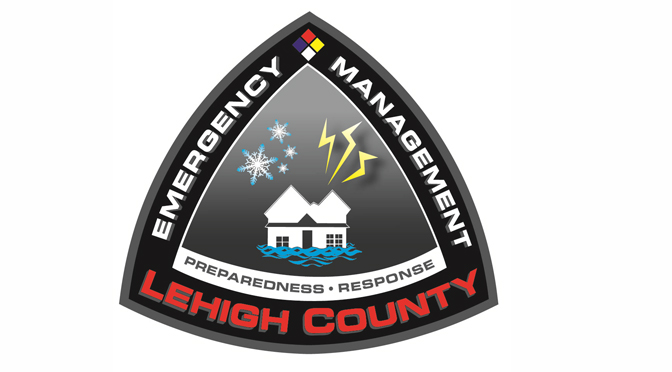Based upon the weather forecasts, the potential continues for very dangerous winter storm systems to affect our region this weekend. The ice and snow will make travel difficult. There is also the potential for damage to tree limbs and power lines. With this type of weather, being prepared to shelter in place and or evacuate your home or place of business is of the utmost importance.
Preparing for emergencies is important! If you have not done so already, it is important to ensure you:
- Check your family’s emergency supply kit – review and update your emergency supply kit. You should have at least a 72-hour supply of non-perishable food, water, medications, and other necessities to sustain you, your family and family pets (remember a kit for your car and work). Find a complete list of items to include in your kit at http://www.ready.gov/build-a-kit
- Review and update your emergency plan. Your family may not be together when a disaster strikes so it is important to plan in advance: how you will get to a safe place; how you will contact one another; how you will get back together; and what you will do in different situations. Find a list of simple and practical steps at http://www.ready.gov/make-a-plan
- Have an adequate communications plan – be sure friends and family know how to contact you. Teach family members how to use text messaging as text messages can often get around network disruptions when a phone call can’t get through
- Follow the directions of local officials – evacuation orders may be issued by officials, so follow their guidance.
- Stay informed; Monitor local weather forecasts and news reports for our area. Remember to have spare batteries for your radio in case of a power outage.
People who must travel in the affected areas are advised to slow down and drive with extreme caution, and those who are staying home are also urged to make plans for the possible loss of power.
Residents should follow the instructions of state, and local officials and listen to local radio or TV stations for updated emergency information. If you are told to stay off the roads, stay home, and when it is safe, check on neighbors or friends nearby who may need assistance or extra support. Older adults and individuals who are dependent on life-sustaining medical equipment or assistive devices such as a ventilator or mobility devices may need additional support in areas that have lost power.
Avoid traveling by car, but those who must are urged to have an emergency supply kit in the trunk of their car. Lehigh County EMA urges families to maintain an emergency supply kit both at home and in the car to help prepare for winter power outages and icy or impassable roads. Those who must travel should take the following steps:
- Wear a seatbelt.
- Travel during the day.
- Drive with headlights on in order to be seen by other motorists from the front and rear.
- Use highly traveled roads and highways.
- Keep family and friends informed of travel schedules and routes.
- Call local phone numbers or visit state Web sites to get information on road conditions
- Keep a winter weather survival kit in the vehicle. The kit should include blankets, warm clothing, water, energy bars, a flashlight, a distress flag, a shovel and matches.
- Travel with a charged cell phone.
- Change travel plans as weather conditions warrant.
If you do get stranded:
- Stay in your vehicle.
- Run the engine and heater about 10 minutes an hour to stay warm.
- When the engine is running, open a window slightly to prevent carbon monoxide poisoning. Periodically clear snow from the exhaust pipe to help prevent carbon monoxide buildup.
- If it is dark outside, turn on the interior light so rescuers can see you.
- Put up a distress flag, or spread a large colored cloth on the ground to attract attention from rescuers.
Follow these important safety tips from the Consumer Product Safety Commission (CPSC), FEMA and the U.S. Fire Administration (USFA) in the aftermath of the storm:
Portable Generators
Never use a generator inside a home, basement, shed or garage even if doors and windows are open. Keep generators outside and far away from windows, doors and vents. Read both the label on your generator and the owner’s manual and follow the instructions. Any electrical cables you use with the generator should be free of damage and suitable for outdoor use.
Charcoal Grills and Camp Stoves
Never use charcoal grills or camp stoves indoors. Deaths have occurred when consumers burned charcoal or used camp stoves in enclosed spaces, which produced lethal levels of carbon monoxide.
CO Alarms
Install carbon monoxide alarms immediately outside each sleeping area and on every level of the home to protect against CO poisoning. Change the alarms’ batteries every year.
Electrical Safety
Stay away from any downed wires, including cable TV feeds. They may be live with deadly voltage.
Candles
Use caution with candles. If possible, use flashlights instead. If you must use candles, do not burn them on or near anything that can catch fire. Never leave burning candles unattended. Extinguish candles when you leave the room.
For more information and winter safety tips, please visit: https://www.ready.gov/winter-weather or www.listo.gov or by calling the Lehigh County Emergency Management Agency at (610) 782-4600.
Information provided to TVL by:
Joshua Siegel
Public Information Officer
County of Lehigh, Office of the County Executive
17 S. 7th Street, 4th Floor, Suite 436
Allentown, PA 18101
www.lehighcounty.org






